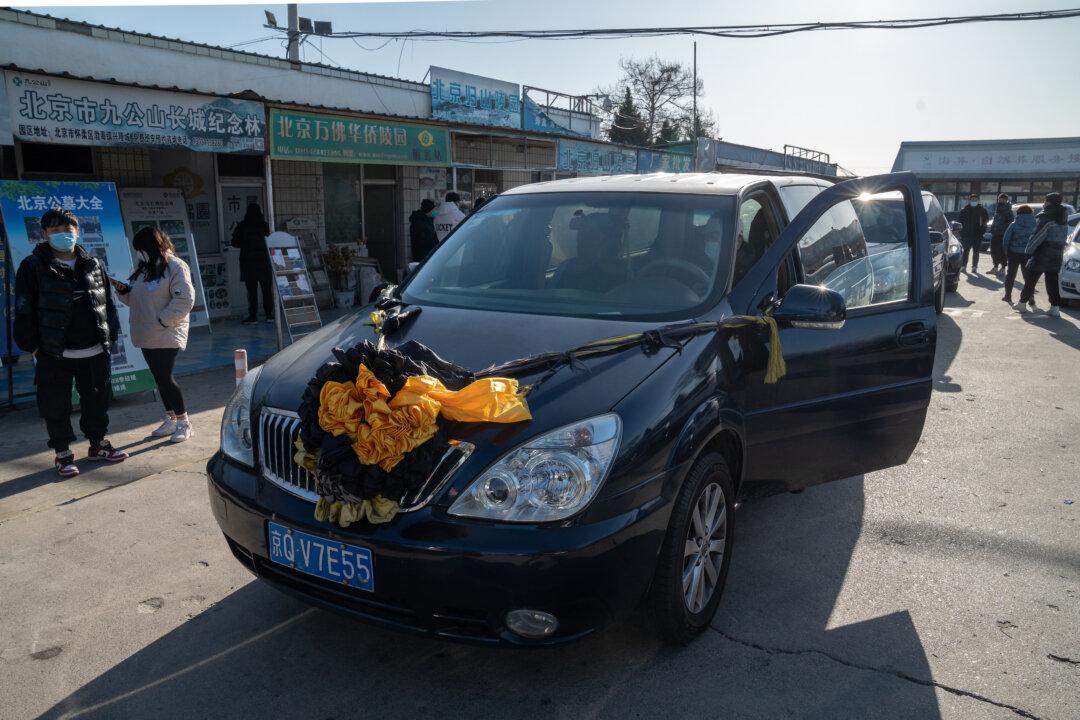Since the death of former Chinese Communist Party (CCP) leader Jiang Zemin in November 2022 and China’s abrupt U-turn on its “zero-COVID” policy amid a growing outbreak, a number of senior CCP members have passed away successively. Four painters with close ties to the communist party from China’s top arts academy all passed away with in six days.

A vehicle decorated with traditional funeral adornments outside Dongjiao Funeral Parlor, reportedly designated to handle COVID fatalities, in Beijing on Dec. 19, 2022. Bloomberg
|Updated:
Shawn Lin is a Chinese expatriate living in New Zealand. He has contributed to The Epoch Times since 2009, with a focus on China-related topics.
Author’s Selected Articles




